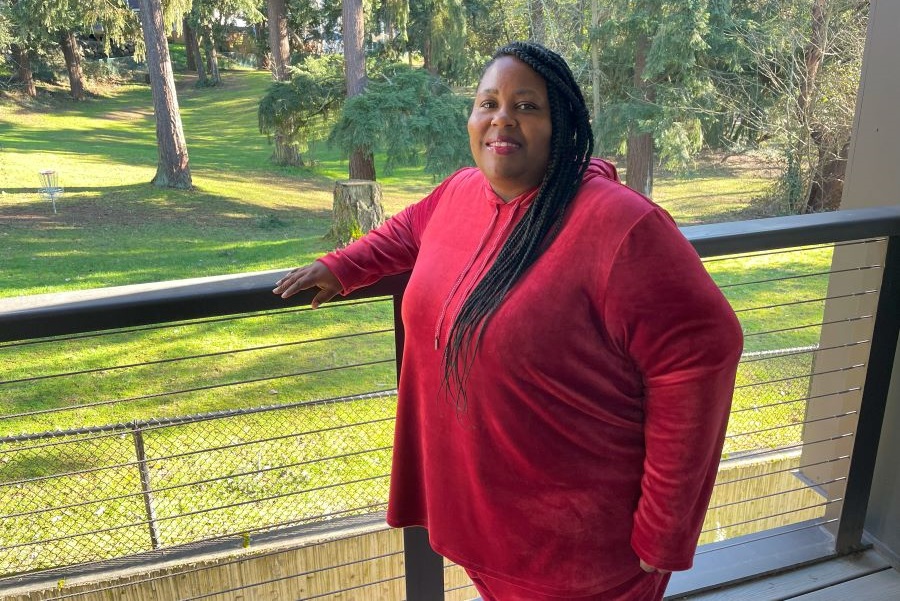Black Community Building Collective: Technology Access
The Black Community Building Collective is a coalition of 14 Black-led organizations brought together by United Way of King County to build relationships, share best practices, and implement strategies with United Way funding. United Way thanks Brighton Jones for its sponsorship of the Black Community Building Collective.
Since March of 2022, United Way has featured a series spotlighting Black Community Building Collective members. For our final series installment, we’re spotlighting Technology Access Foundation, or TAF, a Seattle-based organization founded in 1996 to transform K-12 education across Washington state.
TAF has grown from providing after-school STEM programs for high school students to partnering with public school districts, universities, and organizations to create healthy and safe learning environments that help students become critical thinkers, problem solvers, creators, and leaders. Last year alone, TAF helped more than 2,584 students; 25% of them were English language learners.
We sat down with TAF executive director Sherry Williams to learn more.
United Way of King County: What are the origins of the Technology Access Foundation?
Sherry Williams: TAF was started by Trish Millines Dziko and Jill Hull Dziko, out of their vision of wanting to support children of color, students of color in the Seattle area, to make sure they had the necessary tools and resources to excel in their education and beyond.
They started TAF to help support high school students: The first program they created was the Technical Teens Internship Program, and it was designed to give students of color an edge and make sure they were excelling in a way that was above and beyond what everyone else was doing. That program provided training, not just opportunities to learn how to type or do a search on the Internet, but how to build a computer. From there you pick a particular discipline. It might have been web design or networking, and you stayed on that track for the duration of high school.
United Way of King County: How often did the students meet?
Sherry Williams: They would come from fall to spring, twice a week after school, three hours a day. And if they succeeded in coming twice a week after school, they would get the opportunity to compete for a paid summer internship, which was paid through a company. We would prep them for the [internship] interviews, and they would work full-time for eight weeks during the summer.
And they would receive a $1,000 scholarship for each year completed. A student could start the summer of eighth grade and go all the way through high school.
United Way of King County: And then you moved on to other grades?
Sherry Williams: We said, “What about the younger kids?” We created a program called Tech Start, which was our K-8 program. Kids would come in as young as 5 years old and start to learn. We started to learn how education was shifting and how kids were behind because we were teaching them, but if they couldn’t read it was difficult for them to learn in the programs. That was the start of our desire to fully educate students, not just in after-school programs but throughout the day.
United Way of King County: Where are some of the students who enrolled in TAF at the high school level now?
Sherry Williams: A lot of the students who started from the start are married with children, building their own careers, and changing their communities. They are engineers, nurses, entrepreneurs, data analysts, security, and others.
United Way of King County: How did you get involved in this work?
Sherry Williams: I was working for another nonprofit called Washington Works, a welfare-to-work program. TAF’s co-founder, Trish, was serving on the board at Welfare Works. When Trish was deciding to launch TAF, being connected to Washington Works, she wanted to make sure she hired from the community. She me sent a job description because my role at Washington Works was to match people to different roles and prepare them for interviews.
I reviewed the job description for TAF, and I read the mission of serving students of color, and it when organizations have as their mission educating students of color. I told Trish I wanted to apply for the position. I interviewed when TAF was about four months old. I recently celebrated my 27th anniversary at TAF on Feb. 3.


Comments